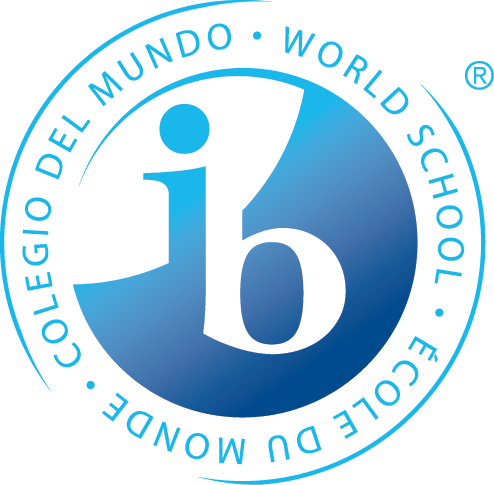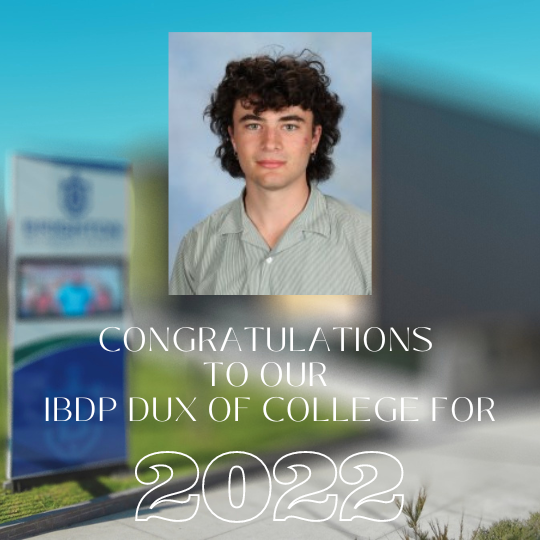Deprecated: Required parameter $form follows optional parameter $notices in D:\www.brightonsc.vic.edu.au\wp-content\plugins\caldera-forms\classes\render\notices.php on line 40

THE COLLEGE HAS RECEIVED AUTHORISATION TO PROVIDE THE IB DIPLOMA PROGRAMME.

Max Chivers is our IBDP DUX Of College for 2022.
Max achieved an equivalent ATAR score of 99.1.
We are incredibly proud of Max and wish him every success in all his future endeavours.
INTERNATIONAL BACCALAUREATE
IB MISSION STATEMENT
The International Baccalaureate aims to develop inquiring, knowledgeable and caring young people who help to create a better a more peaceful world through intercultural understanding and respect.
To this end, the organisation works with schools, governments and international organisations to develop challenging programs of international education and rigorous assessment.
These programs encourage students across the world to become active, compassionate and lifelong learners who understand that other people, with their differences, can also be right.
Brighton Secondary College is an international accredited school. The International Baccalaureate Programme provides an outward looking global perspective both within and beyond the school community to enrich student learning.
The Diploma Programme (DP) is a two-year international education program offering a holistic approach to teaching and learning with a keen focus on developing intercultural awareness. Students learn to explore and understand the world around them through inquiry, critical thinking and open-mindedness.
THE IB DIPLOMA PROGRAMME AT BRIGHTON SECONDARY COLLEGE WILL PROVIDE STUDENTS WITH:
- an internationally recognised university qualification.
- depth of knowledge by the Extended Essay and Theory of Knowledge
- breadth of learning.
- catering for individual students learning differences with a student centred approach.
- a wide range of pre-tertiary skill development.
- development of the attitude of altruism through Creative, Activity & Service.
KEY FEATURES OF THE DIPLOMA PROGRAMME:
- a more mobile and academically diverse student population.
- world-wide standardised assessment.
- an incorporated global perspective.
IN AN IB SCHOOL
- Students’ prior knowledge is considered to be important.
- Learning is in context.
- Context is relevant.
- They can learn collaboratively.
- The learning environment is provocative.
- Students get appropriate feedback to support their learning.
- Diverse learning styles are understood and accommodated.
- Students feel secure and their ideas are valued and respected.
- Values and expectations are explicit.
- There is a culture of curiosity at the school.
- Students understand how judgments about learning are made, and how to provide evidence of their learning.
- Students become aware of and understand how they learn.
- Metacognition, structured inquiry and critical thinking are central to teaching in the school learning is engaging,
challenging, rigorous, relevant and significant. - Students are encouraged in everything they do in school to become autonomous lifelong learners.
- All of the above comfortably align with the Brighton Secondary College Mission, Vision and Values and appropriately
reflect our Teaching and Learning Philosophy. - The approached to teaching & learning are deliberate strategies, skills and attributes that characterise the classroom
environment. They relate to student self-management, research, thinking, and communication, and aim to build the
learner profile.
THE IB LEARNER PROFILE
IB LEARNERS STRIVE TO BE:
- INQUIRERS – They develop their natural curiosity. They acquire the skills necessary to conduct inquiry and research and show independence in learning. They actively enjoy learning and this love of learning will be sustained throughout their lives.
- KNOWLEDGEABLE –They explore concepts, ideas and issues that have local and global significance. In doing so, they acquire in-depth knowledge and develop understanding across a broad and balanced range of discipline.
- THINKERS – They exercise initiative in applying thinking skills critically and creatively to recognise and approach complex problems, and make reasoned ethical decisions.
- COMMUNICATORS – They understand and express ideas and information confidently and creatively in more than one language and in a variety of modes of communication. They work effectively and willingly in collaboration with others.
- PRINCIPLED – They act with integrity and honesty, with a strong sense of fairness, justice and respect for the dignity of the individual, groups and communities. They take responsibility for their own actions and the consequences that accompany them.
- OPEN-MINDED – They understand and appreciate their own cultures and personal histories, and are open to the perspectives, values and traditions of other individuals and communities. They are accustomed to seeking and evaluating a range of points of view and are willing to grow from the experience.
- CARING – They show empathy, compassion and respect towards the needs and feelings of others. They have a personal commitment to service and act to make a positive difference to the lives of others and to the environment.
- RISK-TAKERS – They approach unfamiliar situations and uncertainty with courage and forethought and have the independence of spirit to explore new roles, ideas and strategies.
- BALANCED – They understand the importance of intellectual, physical and emotional balance to achieve personal well-being for themselves and others.
- REFLECTIVE – They give thoughtful consideration to their own learning and experience. They are able to assess and understand their strengths and limitations in order to support their learning and personal development.




